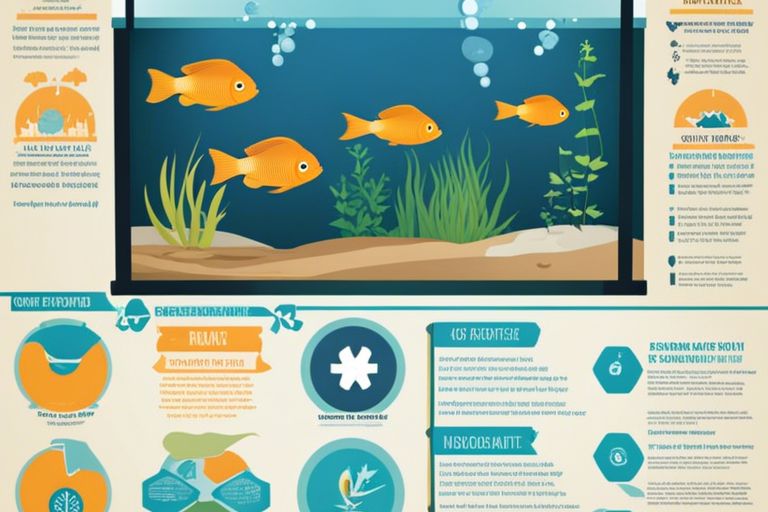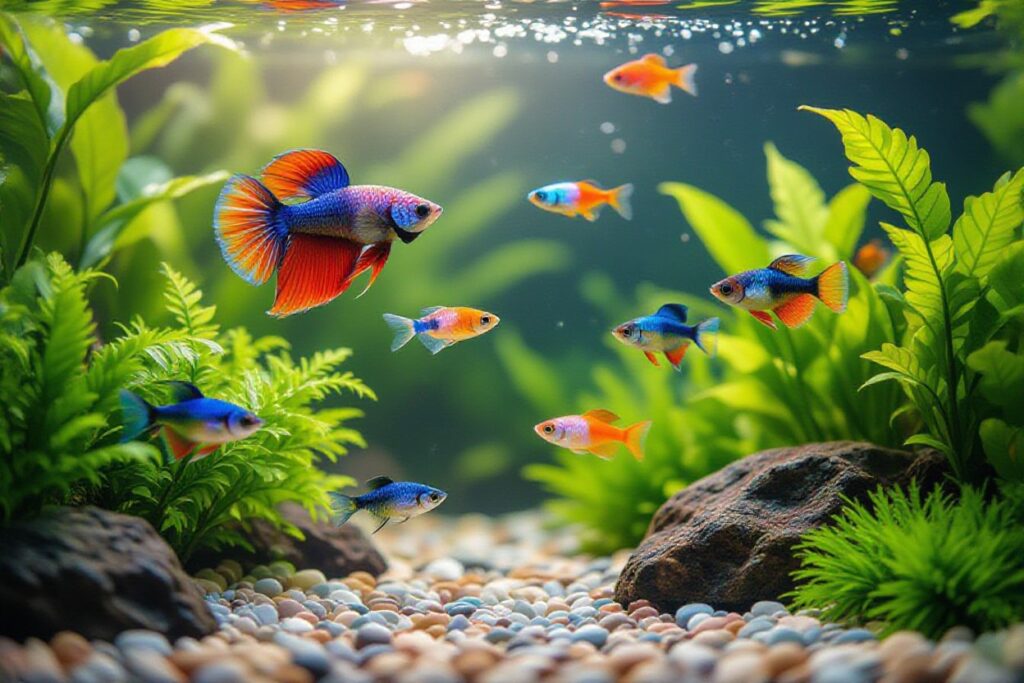Most aquarium fish owners have encountered the dreaded issue of parasitic infections at some point in their aquatic journey. These microscopic parasites, such as ich, flukes, and gill flukes, can wreak havoc on the health and wellbeing of your beloved fish. With the potential to quickly spread and cause serious harm, it is crucial to address these infections promptly and effectively. In this informative guide, we will explore common parasitic infections in aquarium fish, their symptoms, and most importantly, how to effectively manage and treat these pesky invaders to keep your underwater friends healthy and thriving.
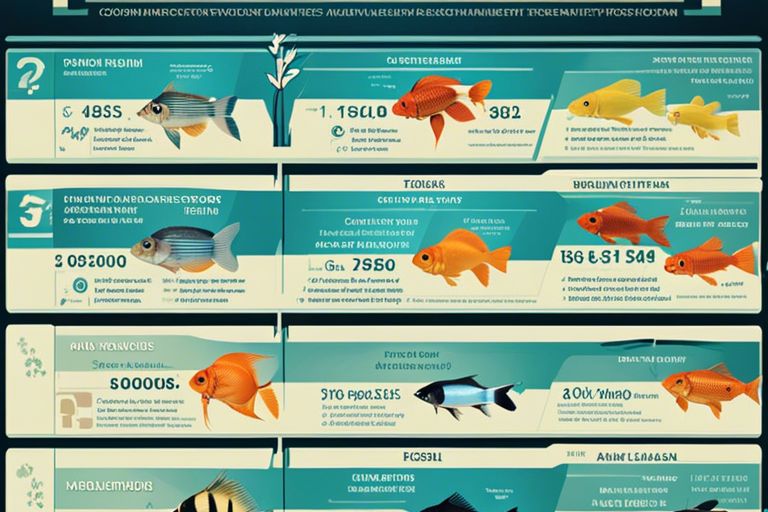
Common Parasitic Infections in Aquarium Fish
While aquarium fish can bring joy and tranquility to your home, dealing with parasitic infections can be a real challenge for fish keepers. Understanding the common parasites that can affect your fish is crucial in effectively managing and treating these issues.
Ichthyophthirius multifiliis (Ich)
Any fish owner’s worst nightmare, Ich, also known as “white spot disease,” is caused by the parasite Ichthyophthirius multifiliis. This parasite is highly contagious and can quickly spread throughout your aquarium if not dealt with promptly. It presents as white spots on the fish’s body and fins, leading to skin irritation, excess mucus production, and ultimately, if untreated, death.
Other Common Parasites
Parasitic infections in aquarium fish are not limited to Ich. Other common parasites include monogeneans, velvet disease (Oodinium), anchor worms (Lernaea), and flukes (Dactylogyrus and Gyrodactylus). These parasites can cause a range of symptoms, including irritation, inflammation, and behavioral changes in infected fish.
It is crucial to closely monitor your fish for any signs of parasitic infections and take immediate action to prevent further spread and potential harm to your aquarium inhabitants. Regular water quality checks, proper quarantine procedures for new fish, and a well-balanced diet can help reduce the risk of parasitic infections in your aquarium.
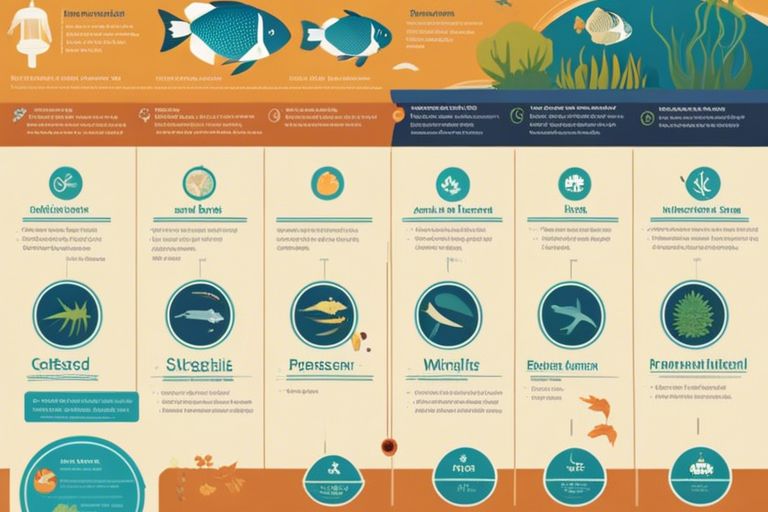
Diagnosis and Identification
Physical Examination
On observing your aquarium fish, you may notice physical signs of a parasitic infection such as abnormal swimming behavior, visible spots or growths on the skin, changes in coloration, frayed fins, or labored breathing. These visible symptoms can provide crucial clues for identifying the type of parasite affecting your fish.
Laboratory Testing
Diagnosis of parasitic infections in aquarium fish often requires laboratory testing to accurately identify the type of parasite involved. It involves examining skin scrapings, gill biopsies, or fecal samples under a microscope to detect the presence of parasites or their eggs. By conducting proper laboratory tests, veterinarians or experienced hobbyists can make a definitive diagnosis and recommend appropriate treatment options.
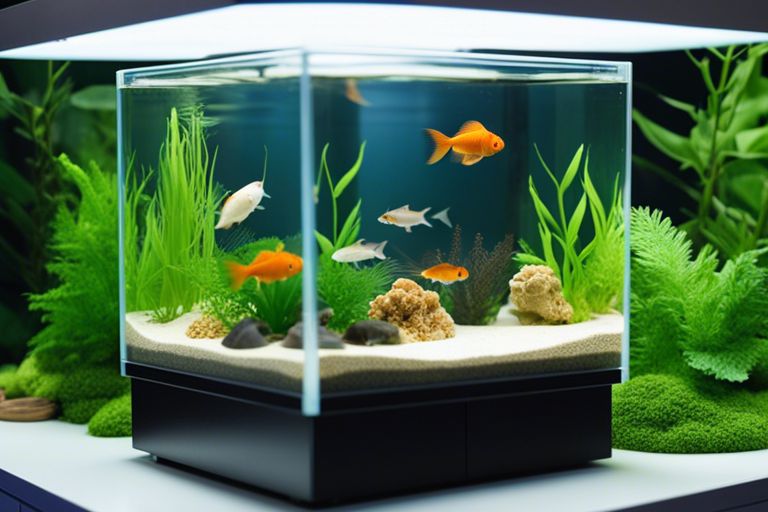
Treatment Strategies
Chemical Treatments
Any chemical treatments should be used with caution when dealing with parasitic infections in your aquarium fish. It is important to carefully follow the manufacturer’s instructions and dosage recommendations. Common chemical treatments for parasitic infections include medications containing ingredients such as formalin, copper, or praziquantel. However, these treatments can be harsh on your fish and may also affect beneficial bacteria in your aquarium.
Natural and Alternative Remedies
On the other hand, natural and alternative remedies can also be effective in treating parasitic infections in aquarium fish. These remedies may include the use of herbal treatments, salt baths, or the introduction of certain species of fish known for their ability to eat parasites. Natural remedies can be a gentler option for treating parasitic infections and may be less harmful to your fish and the overall ecosystem of your aquarium.
Although natural and alternative remedies can be effective, it is important to note that they may not always be as potent or targeted as chemical treatments. Therefore, they may require a longer treatment duration or repeated applications to fully eradicate the parasites from your aquarium.
Prevention and Maintenance
Quarantine Procedures
To prevent the introduction of parasites into your main aquarium, it is crucial to quarantine all new fish before adding them to your established tank. A separate quarantine tank should be set up with similar water parameters and maintained for a few weeks to observe the new fish for any signs of infection. This step is imperative in ensuring the health of your current aquarium inhabitants.
Aquarium Hygiene and Regular Care
To maintain a healthy environment, regular aquarium maintenance is key in preventing parasitic infections. This includes performing routine water changes, cleaning or replacing filter media when needed, and vacuuming the substrate to remove any debris or uneaten food. Additionally, monitoring water parameters such as pH, ammonia, nitrite, and nitrate levels can help prevent stress on the fish, making them less susceptible to parasites.
The presence of parasites can often be linked to poor aquarium hygiene and neglect in regular care routines. Ensure that your tank is properly maintained and clean to reduce the likelihood of parasitic infections. Consistent monitoring and prompt action in addressing any issues can help keep your fish healthy and thriving.
Summing up
With these considerations in mind, it is crucial for aquarium hobbyists to be vigilant in preventing and treating parasitic infections in their fish. By maintaining good water quality, observing fish behavior closely, and promptly addressing any signs of infection, hobbyists can keep their aquariums healthy and thriving. Consulting with a veterinarian specializing in exotic fish can also provide valuable guidance and treatment options. Ultimately, a proactive approach to preventing and treating parasitic infections will ensure the well-being of aquarium fish and contribute to a successful and enjoyable hobby.
FAQ
Q: What are parasitic infections in aquarium fish?
A: Parasitic infections in aquarium fish are caused by microscopic parasites that attach themselves to the fish, feeding on their blood or tissues, which can weaken their health and even lead to death if not treated promptly.
Q: How do I know if my aquarium fish have a parasitic infection?
A: Common signs of parasitic infections in aquarium fish include visible parasites on the fish’s body, changes in behavior such as rubbing against objects, loss of appetite, frayed fins, white spots or patches on the body, and increased mucus production.
Q: What are some common types of parasitic infections in aquarium fish?
A: Common types of parasitic infections in aquarium fish include Ich (White Spot Disease), Velvet Disease, Flukes, Anchor Worms, and Fish Lice.
Q: How can I prevent parasitic infections in my aquarium fish?
A: To prevent parasitic infections in aquarium fish, maintain good water quality, avoid overcrowding the aquarium, quarantine new fish before introducing them to the main tank, and regularly clean and disinfect decorations and equipment.
Q: How can I treat parasitic infections in my aquarium fish?
A: Treatments for parasitic infections in aquarium fish include medicated fish food, bath treatments, and adding medication to the aquarium water. It is important to follow the instructions carefully and complete the full treatment course.
Q: Are there any natural remedies for parasitic infections in aquarium fish?
A: Some natural remedies for parasitic infections in aquarium fish include adding aquarium salt to the water, raising the temperature of the water, and using herbal remedies like garlic or tea tree oil. However, these remedies may not be as effective as commercial medications.
Q: Can parasitic infections in aquarium fish be transmitted to other fish or to humans?
A: Yes, parasitic infections in aquarium fish can be transmitted to other fish in the same tank, so it is important to quarantine and treat infected fish promptly. While some fish parasites can infect humans if proper precautions are not taken, the risk is generally low and can be minimized by practicing good hygiene when handling aquarium fish or equipment.
